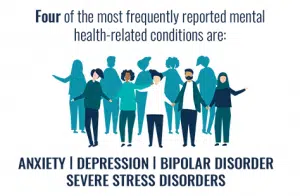Emotional support animals might be one of the most controversial forms of therapy. A lack of existing rules resulted in a negative reputation, which loses sight of the positive impact these animals have on those in need.
What is it like to have an emotional support animal and why isn’t everyone a big fan?
Over two million Canadians struggle with their mental health.
Mental health professionals often acknowledge the positive effects animals can have on someone who is struggling with anxiety, depression or stress.
Music Major at Western University, Carole Palattao, struggles with anxiety and depression. Her emotional support animal plays a big part in her recovery.
“Someone else is relying on me. If I want to take care of him, I have to take care of myself too. I have something to live for.”
Confusion
There are different ways animals can have a positive impact, but these differences often get confused.
Service dogs are dogs that help people with specific tasks and are highly trained.
Therapy dogs provide affection and comfort to individuals is facilities like hospitals, nursing homes, universities and more.
Emotional support animals help individuals with emotional problems by providing comfort and support, but they don’t require any training.
Founder of Searchlight Service Dogs, Bruno Amaro, says the confusion harms people who own a service dog.
“Part of the problem is that a lot of people don’t know the difference between the two. Someone might try to pass their emotional support dog as a service dog, which is horrible for people who actually have a service dog.”
Amaro fears that service dogs might be denied access because a business owner has had a bad experience with an untrained animal. Business owners reserve the right to turn away any animal, even a service dog, if it’s disturbing the natural operation of the business.
Online fraud
There is no official registry for emotional support animals. However, if you would want to travel or live with your emotional support animal, that is possible with an official Emotional Support Animal Letter written by a licensed mental health practitioner.
Multiple online companies claim to provide these official letters without ever seeing anyone in person. All you have to do is pay a fee and fill out a questionnaire.
This causes two problems, people pay for fake letters and everybody has easy access to promote their pet to an emotional support animal, maybe without needing it.
CEO of ESAD International, Chaz Stevens, has seen a lot of fraudulent online businesses. “Some clients are extremely flexible and just want to save a few dollars. The business needs to be dramatically cleaned up.”
Besides selling the ESA letters, fake companies also try to sell vests, registration for emotional support animals and more. None of which are officially required.
Sign. Me. Up. #wherecanigetone #honeybadger #emotionalsupportanimal #anxietycompanion #giveszerofucks #signmeup #dontgiveashit @Mathieu_Era @TMKBClassic pic.twitter.com/O9tPj79wXM
— Sarah (@Tiogar) February 3, 2018
Hahaha…thank you listener Jessica! #EmotionalSupportAnimal #Narwhal pic.twitter.com/NVSsTuo2TG
— WoodyAndWilcox (@woodyandwilcox) February 1, 2018
Passing off one’s pets as #ServiceAnimals has to stop. It’s a disservice to the #DisabilityCommunity, including those who are highly allergic to animals. #EmotionalSupportAnimal #DisabilityRights #accessibility #disabilities #esaoftheday https://t.co/Sh1so2xC1f
— Julie Ancis (@DrJulieAncis) January 31, 2018
Lack of regulation
There are very few federal and provincial laws regarding emotional support animals. Actual laws, changes in the medical policy, may clarify what an emotional support animal is and reduce the negative reputation they have now.
Normalizing the presence of animals in common spaces might be a way to reduce the amount of people unfairly claiming they need an emotional support animal. Other countries, like Belgium, already allow animals in public spaces like restaurants.
Volunteer at St. John’s Ambulance Therapy Dogs, Jenny Hauser, has seen the positive effects animals can have on people herself. “Animals can play a big factor in your mental health because they don’t care what you look like, what socio-economic status you have, what race you are, how rich or how poor you are. They don’t care. They just love you.”
For Carole Palattao her bunny Timothy made a huge difference in her life. “Coming home to him is a big highlight of my day.”







